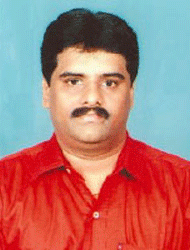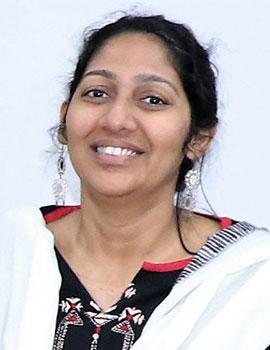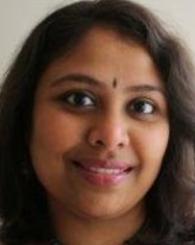J-PAL South Asia @ 10: Testimonials
Timeline | Testimonials | Communications
Partners
Ashish Dhawan
Founder and Chairman
Central Square Foundation
Congrats on the 10th anniversary. J-PAL has done tremendous work in the past decade. I know that my thinking has been shaped by your research and I only hope that more policy makers start to insist upon evidence based reform and decision making.
Dr. Rukmini Banerji
CEO
Pratham
We are proud to say that Pratham was working with you even before you became JPAL. For the last twenty years, together, we have learned a lot from exploring many key questions about "what works" in primary education. Best wishes from everyone at Pratham to JPAL for your tenth birthday. And we look forward with you for many more productive and fruitful years ahead.
Lobzang Dorji
Director, Cabinet Secretariat
Royal Government of Bhutan
On behalf of the Office of the Prime Minister and the Cabinet Secretariat, Royal Government of Bhutan, I would like to extend our gratitude and thanks to J-PAL South Asia and Clear South Asia team for conducting the 2-day training programme in monitoring and evaluation. The training material and the content as well as the facilitators outlived our expectations as reflected by all our participants. We will greatly benefit from this experience with J-PAL South Asia and earnestly hope that we will continue to collaborate in the future.
Diva Dhar
Program Officer (Measurement, Learning and Evaluation)
Gates Foundation
When I used to work at J-PAL, there was a joke we used to make - “You can check out, but you can never leave”, using the lyrics from Hotel California.
It has been a pleasure working at, and more recently with, J-PAL South Asia. J-PAL SA, its staff and affiliates, bring both rigor and passion to their work. In India, BMGF has partnered recently with J-PAL on 2 initiatives – building a body of evidence on cash transfers for child health and nutrition to inform program design and implementation; and as an M&E training and learning partner for foundation staff in India.
J-PAL is well known already for its scientific approach and attention to detail, but what is great is that they are also open, collaborative and buzzing with ideas and energy. They’re ready to engage, debate and think through questions or ideas. They are action-oriented, and are making considerable efforts to have the research translate into an impact on policy, and to have decision-makers understand and use evidence more carefully. It has been a delight to watch J-PAL evolve and grow in India, and I wish them the best for the next decade.
Staff

B Ayyappa
Administrative Manager
J-PAL South Asia
I have been often 'noted' as the first employee of J-PAL South Asia. It's been a tremendous journey witnessing the ‘birth of a baby’ and seeing it mature to a self-sustaining individual. For me, the biggest satisfaction is to see a lot of new systems being established in the organization in the last decade. Especially since 2012, organisational operations have been developed which helped J-PAL South Asia grow in scale. We have had a significant incremental growth over the last decade, and moved from having only 3 staff members to nearly 170 staff members and around 1000 field staff manning nearly 70 ongoing evaluations. I am proud of the recognition I have received from the scientific directors for my work and contribution to support this 10 year journey. In particular, a note of appreciation received from Prof Esther Duflo during the 10th year celebrations of J-PAL Global in 2013, remains a very special one.
It makes me happy to look back at the foundation day in 2007 when upon my request, Prof Duflo, Prof Rachel Glennester, Prof Abhijit Banerjee and others lighted the ceremonial lamp to start this journey. It was also heart warming to be able to spend a few minutes in the august company of Mr. Narayanan Vaghul, former Chairman of ICICI Bank Limited and Mr. NR Narayana Murthy, former chairman and founder, Infosys.
I look forward to see J-PAL South Asia grow even bigger and will continue to provide my support in the best possible manner. My best wishes to everyone in the J-PAL South Asia at IFMR family for being a part of this momentous journey.

Aparna Krishnan
Project Director, Government of Tamil Nadu Project
J-PAL South Asia
I have enjoyed being a part of J-PAL South Asia’s remarkable 10 year journey, from being a part of a small field office running a few interesting experiments in the country to a credible and influential voice in the emerging space of evidence informed policy-making in the region. While J-PAL South Asia continues growing, it is impressive that it still collectively retains and demonstrates the founding values of commitment to excellence, being grounded in local context, and ability to innovate and adapt in its work every single day. Most importantly and in every context, putting people first, whether it is survey respondents, project field staff, implementing partners, or employees makes working with J-PAL South Asia an unforgettable and unique experience for me.
I often fondly recollect my first interaction with J-PAL in India in 2007, even before the South Asia office had been set up. It was my first week at work, and my first conversation with a founding affiliate of J-PAL, Sendhil Mullainathan. He walked up to me and said, “Hi! I heard you can speak Tamil. Could you run to the wholesale vegetable market in Chennai early in the morning when the vendors are setting up, and do a quick survey about their understanding and use of credit and interest rates? I have an idea for a project!”
Since 2007, J-PAL South Asia has been enthusiastically turning bright ideas into full-scale impact evaluation projects tackling complex development questions in very innovative and insightful ways, providing all of us who have been working on these projects, a uniquely enriching and fun experience.

Harini Kannan
Post Doctoral Fellow and Senior Research Manager
J-PAL South Asia
I first heard about J-PAL when I was lamenting to my professor about the lack of a dynamic organization in India working at the intersection of policy and research. All the ones I reached out to, seemed incredibly stagnant. She told me to explore a new organization J-PAL that according to her was doing something similar. In my 7th year at J-PAL South Asia, those words have never been truer.
As I look back, my first day was very indicative of the life ahead in J-PAL South Asia. Shobhini, then my PI/RM asked me to go to the field the following day to plan a survey, translate a Math test from English to Hindi and informed me matter-of-factly, that the project had no funding yet!
I’ve seen J-PAL SA grow exponentially–from furtively transporting cash in old cloth bags to pay surveyors to online transfers, stopped paper-based surveys and transitioned into Digital Data Collection. We have added a Policy & Training team, established institutional partnerships with state governments and most importantly started working on more complex projects exploring nuanced policy relevant questions. My work has given an opportunity to meet senior policymakers, allowing me to understand their challenges and incentives. I have heartily enjoyed the process of ideating; implementing/evaluation and scaling up a program and would cherish these experiences for life.
Life here at J-PAL South Asia has been a roller coaster ride, but one thing that remained constant has been its ability to grow and attract a group of committed and talented staff to expand further. I hope we strengthen more and continue to make a difference to people’s lives.
Reflections and Wishes from Alumni
To celebrate our 10-year milestone, we caught up with some of our alumni who have shaped the trajectory of J-PAL SA as it has shaped them. As these reflections show, our alumni have gone on to diverse careers. Nevertheless, each regards the J-PAL SA experience as distinctive and rewarding. These are just a few reflections of a network of hundreds of alumni scattered across the world who call J-PAL SA theirs.
Finding Myself—Nikhil Wilmink
It is difficult to articulate how formative the J-PAL SA experience was. It shaped me profoundly, building my skills as a professional and forming iron-wrought friendships with an incredible group of people. Looking back now, however the work stands out. I recall months of planning as well as blood, sweat and tears culminating in tangible relief, pride, exhaustion, and triumph at the end of a baseline or endline survey. More powerful was the unintended spillover effect of running RCTs in unpredictable contexts; this created an intense bond of shared experience with people who have been through it with you. But we also had fun and partied hard at both formal and informal staff meetings throughout India. Literature festivals, camel treks, beach-side parties that some won’t remember but others will never forget—I lived a lot of life during my time at J-PAL. I wouldn’t have it any other way!
Wilmink is an M&E Technical Advisor at the Clinton Health Access Initiative in Zambia. After J-PAL SA, he completed a Master’s in Governance and Development at the University of Sussex.
We Few, We Happy Few—Aditya Balasubramanian
My experience at J-PAL was shaped profoundly by the supportive environment of the office and in particular, two very special people working there: Raju and Lalit Singh. I came to J-PAL between my third and fourth year of undergraduate as a somewhat lost soul. As the youngest person in the office suffering from the ‘twin deficits’ of maturity and skills, I arrived rather anxious. When I left, it was with a sense of confidence about my professional opportunities and goals, and with a renewed enthusiasm for my studies. This was the joint effort of my colleagues and supervisors, and PIs. What I want to highlight here is the role of the friendship of two people who had no special incentive to engage with me. To me it speaks more widely about the culture of the organisation.
Raju made sure I felt welcomed by showing me the ropes around the office and explaining to me where everything was. Whenever I had trouble with logistics management, communication, or transport issues, he was there to lend a hand, with a wide grin and more often than not, a chuckle. No task was too difficult, no request baffling. To everything, he would say 'Ho jaayega,' or 'Aapka kaam ho jaayega.' Lalit Singh, who worked as the data manager for the Delhi Voters' Project, was instrumental in helping coordinate a citywide newspaper drop that formed a central part of the project. His deep knowledge of GIS software and familiarity with the constantly updated maps of Delhi made the process run extremely smoothly. He did not hesitate to stay late at work or come in early to help me out, and he took personal ownership of the project.
I remain in touch with both. Today, Lalit is a successful Cost and Works Accountant managing many accounts for Makemytrip.com, India's leading travel website. Raju continues to make J-PAL Delhi tick. Whenever I am in the city, I have a chance to see both. In fact, Raju took me to Lalit's wedding on his motorcycle. Years after we both left J-PAL, he brought me and Lalit together again in celebration.
Balasubramanian is a History of Political Economy Fellow at Duke University while he completes his PhD in History from Trinity College, Cambridge. After J-PAL SA, he finished his undergraduate degree and became only slightly more mature.
J-PAL and the Arcs of One’s Career—Gaurav Chiplunkar
Many of us, myself included, came to J-PAL as young 23 year-olds with Master’s degrees—or not even that—under our belt, a wealth of theoretical knowledge on how the world should work and a strong belief about “translating research into action.” However, the first week of J-PAL exposed us to the nuances and realities about how the world actually works: from hiring/firing field staff and writing out their contracts, to working in government offices for approvals and convincing policymakers on need for RCTs. From writing out donor and policy reports highlighting the importance of the project to travelling long hours on rickety buses to survey village/slum households and understand grass root issues- the RAs and RMs are thrown into it all. Leading the charge on all these different fronts fundamentally tests one’s beliefs and profoundly shapes his or her interests. While it renewed my enthusiasm to pursue rigorous academic research in a PhD program, this experience has motivated many others to pursue completely different paths. J-PAL alums have appeared for the Civil Service examinations, worked with other think tanks within and outside India, pursued postgraduate programs, and even returned to the corporate world. But despite these varied interests and careers however, the lifelong friendship forged at J-PAL remains, thus opening the doors to meet up in a new city or country, or to grab a coffee/beer and strike up conversations to share vastly different perspectives!
Chiplunkar is a Fifth-Year PhD candidate in the Economics Department at Yale, where he joined after completing his tenure at J-PAL SA.
Words from The Mother—Bhavya Srinivasan
I have the fondest of memories from J-PAL SA. I would always joke with Ayyappa on how J-PAL SA was like my child that I saw grow and mature into the organisation that it is today. I did not see it as work, but always considered it my family. Having been the ‘sos’ or ‘go to’ person for everyone made sure that I actually got to know all the wonderful people - from RAs, RMs, Admin, PIs, IFMR - and forged very special bonds and friendships. Talking to some of the alumni recently, the one thing we agree is that we are so glad to have met and worked with such an amazing, dedicated and diverse bunch of people. As I look back on my 5 years at J-PAL SA. I am also super grateful for the professional career boost that working with some of the smartest people I know has given me. As you all enter into the next phase, I wish you all the very best and look forward to staying connected always!
Srinivasan is the Innovations Operations Manager at The Start Network, a global network of aid agencies working to pioneer new forms of aid finance. After her tenure at J-PAL SA, she worked as a consultant for various organisations.
J-PAL as Education—Manaswini Rao
Somehow I never felt I “worked” at J-PAL SA. Rather, my 4 years there has been like another university degree! Gowramma, Sharada, Shobha and many other experienced field investigators taught me how to do fieldwork. When I joined J-PAL in August 2010, I landed straight into running lab-in-field experiments that required our respondents (village residents) to show up at the village school (our venue) on time! And did they show up on time? Yes! Thanks to the meticulous organization of Gowramma and team, that split into getting respondents to the venue and another getting the experiment started. This made me realize immense logistical coordination in running field experiments and the many possibilities by which things can go wrong. Thanks to these amazing people, I could effectively manage my stress levels and learn how to get things done in the field!
I learnt the ropes of economic research from Arun Chandrasekhar and Emily Breza, then PhD students and now faculty at Stanford at Harvard respectively. They made sure that I understood the research question, design and modeling methodologies. Impressively, they seriously considered any inputs I provided to the design. Iqbal Dhaliwal and Rema Hanna showed me how to work with policy makers. They encouraged me to communicate weekly with key IAS officers and engage with donors to present on the project progress. These motivated me immensely as I felt I was learning along multiple dimensions.
Lest the readers get bored to read about such serious stuff, these years also taught me how to have fun during various staff meets across the country. I should especially mention Mafia nights at Harini’s during meets at Delhi! While people came and left during my stint, the essence of J-PAL SA remained unaltered, which was built on deep friendship between its people. My very best to J-PAL SA as it forges ahead into another decade full of exciting research and policy influence and may it never lose its core essence of deep connection among its people!
Rao is a PhD candidate in Agricultural Resource Economics at the University of California at Berkeley, where she moved after her tenure at J-PAL.